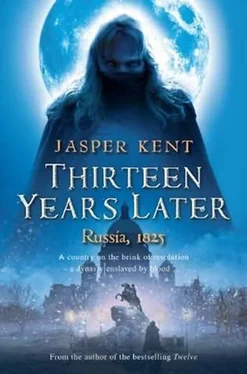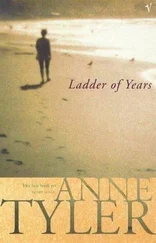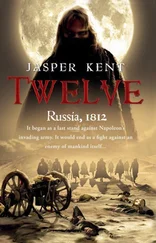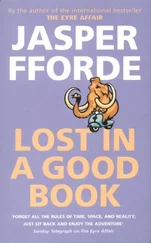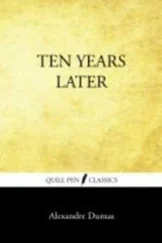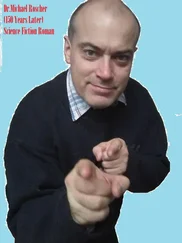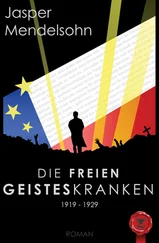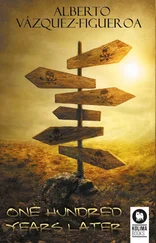Dmitry studied his father, but saw nothing beyond the obvious in the request. ‘There you are,’ he said, handing the sword over with a shrug and a smile.
A few hours later, they said their farewells to Marfa. It was a tearful occasion, on her part at least, and Aleksei thought he perceived a glistening in Dmitry’s eye too. For himself, he felt no especial emotion beyond what was normal for his departures from home, beyond that feeling of giddy anticipation he had felt about visiting Moscow since even before he had any specific reason to and whose causes had multiplied over the years. His goodbye to Marfa was no different from what it had always been, and as for Dmitry, they were not yet to part.
Marfa had recomposed herself by the time she kissed her husband’s lips, stroked his hair and let his fingers linger briefly in hers. There had been no tears between them for many years, and her kisses had long since lost the passion of a soldier’s new bride. Aleksei had always supposed she contained her emotion for his sake, so that he would not feel so callous in leaving her, but now he knew that the cause was different.
How long after his departure, he wondered, would it be before Marfa found herself in the arms of Vasiliy, her lover?
Most likely no longer than it would be before Aleksei was in the arms of his.
The journey to Moscow took four days. Aleksei complained all the way that they would have travelled more quickly on horseback, but Dmitry suspected that, at his age, his father was quite happy to be driven in the comfort of a carriage. Even if the two men had chosen to ride the whole journey, they would still have required a carriage of some sort to follow them, bringing Dmitry’s copious luggage. It amazed Dmitry that his father could travel with so little, but the explanation offered was that Aleksei was such a frequent visitor to the old capital that he kept all that he required in terms of clothing and other essentials at his usual residence there.
It was not Dmitry’s first visit to Moscow, but he was by no means familiar with the city. As they approached, and increasingly as their carriage trundled through the outskirts, Aleksei sat up, his head pushed out the window, resembling nothing so much as an excited pet dog recognizing its environs and realizing it will soon be home. At almost every turn he would point out a brand-new building, a newly reconstructed one, or one that he had never seen before, or perhaps only seen once or twice. Many of them were simply houses or shops, but he seemed to observe every detail that had changed since his last visit.
‘Of course, it’s the theatres that everyone’s talking about,’ he said as they drove down Tverskaya Street to the centre of the city. ‘The Bolshoi only opened in January. I’ve seen it, but I haven’t been in yet.’ His eyes tracked sideways for a moment, gazing down a small lane to the left as they passed, then returned to the road ahead. ‘We’ll see them both in a minute.’
‘It’s hard to believe it was ever how you described it,’ said Dmitry. He had been just five years old when the fires – caused, directly or indirectly, by the invading French – had destroyed two-thirds of the city’s buildings. His father’s passion in describing both the horror of that carnage and the joy of the subsequent resurrection was always a delight to hear. Dmitry knew, of course, that there was some exaggeration in it. Aleksei described the fires as if he had been standing right in front of them, as if he could feel their heat on his face. But Dmitry knew his father, along with the rest of the Russian army, could not have been in Moscow at the time of the occupation. At best he could have witnessed the conflagration from several versts away. That was just part of the skill Aleksei had in telling the stories.
‘When did we first come here?’ Aleksei asked.
‘1820.’
‘Even by then, there had been so much done. Most of the private homes were rebuilt within a few years.’
‘There are still some that haven’t been,’ said Dmitry, pointing to a gap between two new buildings where rubble and charred wood were still visible. Not even a fence separated it from the street.
Aleksei nodded. ‘Some people just decided not to come back home,’ he said wistfully. They rode on in silence for no more than half a minute. Dmitry had just caught sight of one of the Kremlin towers, though he did not know which one, when his father pulled his arm and pointed in the other direction.
‘There it is! Look!’ he exclaimed excitedly. The Bolshoi Theatre was certainly impressive. The stone colonnade of the entrance, topped by a bronze quadriga, gave exactly the impression that was intended – exactly what the tsar had paid for. Beyond it, the Maly Theatre was less ostentatious, but presumably served its customers just as well. ‘Worthy of Paris,’ said Aleksei.
The coach turned right, past the Kremlin, and headed down towards the river. Aleksei leaned over and pointed out of the right-hand window. ‘That’s the manège. You’ll be spending a lot of your time training in there.’
Dmitry smiled. His father had pointed out the half-finished riding school to him on his first visit. Now it was complete. ‘You said exactly the same thing to me when I was thirteen,’ he said.
Aleksei seemed too enthralled with his surroundings to listen. ‘Of course, there used to be a river flowing down here,’ he explained, pointing back out of his side of the carriage, to the gardens at the foot of the Kremlin wall. ‘The Neglinnaya. Just a sewer really – stank to high heaven. Still is a sewer, I suppose. At least now it’s covered over. I wonder if we can see where it comes out.’
As the carriage clattered on to the Stone Bridge, Aleksei leaned far out of the window and looked back the way they had come. They were almost halfway across when he sat back down.
‘No, couldn’t see it,’ he said with a brief shake of his head. He was smiling broadly, in a way that Dmitry had rarely seen in Petersburg.
‘You like it here, don’t you?’ Dmitry asked.
‘So will you, Mitka. So will you.’ His father’s tone did not suggest that this was an attempt to persuade him – just a statement of the obvious.
The coach drove over the river and over the canal and into Zamoskvorechye. Soon they pulled up outside a hotel. It was not the grandest the city had to offer. Aleksei jumped out on to the street. The coachman dismounted more slowly.
‘So this is where you usually stay?’ asked Dmitry. On their visits as a family, they had stayed in a somewhat grander residence, north of the river.
‘Yes, since the war.’ The coachman gave Aleksei his single leather bag. ‘Before that it used to be a place in Tverskaya, but that half burned down. They demolished the rest, eventually.’
The coachman had remounted, and shook the horses’ reins. ‘And we’ll meet here, tomorrow?’ said Dmitry, as the coach pulled away.
‘Yes. Eight o’clock,’ shouted Aleksei after him. ‘And then on to Desna.’
Dmitry watched his father’s image recede for a few moments before settling back into his seat. Before long he would be at his barracks, and a new life would begin for him. He smiled. His father’s enthusiasm had infected him. Perhaps an army life wouldn’t be so bad.
Aleksei had unpacked, changed his clothes and was out of the hotel again within eight minutes. He chose to walk. It wasn’t far; back across the Stone Bridge and then west towards the Arbat. One might have thought Aleksei had chosen his hotel, back in 1816 when he first stayed there, for its convenience, but that was not the case. Back then, the house for which he was now heading had not even been built. The proximity which he had sought had been in the opposite direction, to a street in Zamoskvorechye occupied almost exclusively by milliner’s shops, and to one shop in particular.
Читать дальше
